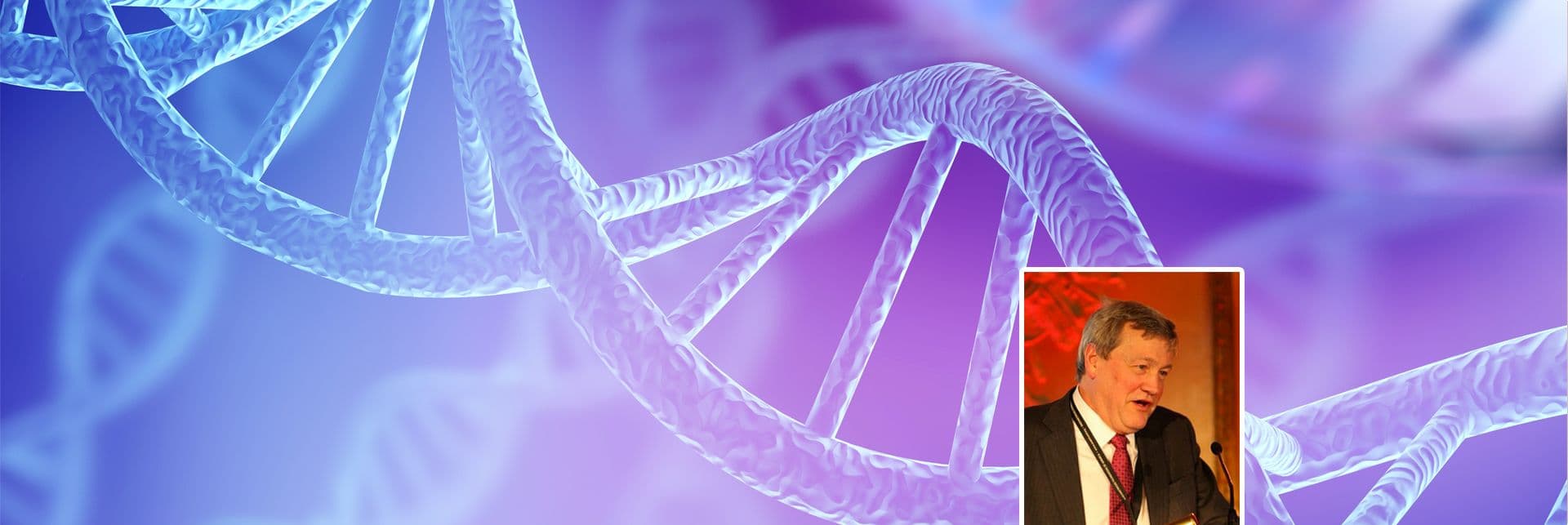Community Gateway
Back to Gateway
Peter K. Gregersen received his MD from Columbia University College of Physicians and Surgeons in 1976 and completed a rheumatology fellowship at the Hospital for Joint Diseases in 1984. He is currently the Center Head for the Robert S. Boas Center for Genomics and Human Genetics at the Feinstein Institute for Medical Research at Northwell Health and a Professor of Molecular Medicine at the Hofstra Northwell School of Medicine.
Dr. Gregersen has been a leader in defining the genetics of rheumatoid arthritis and other autoimmune diseases. He was among the first to clone and sequence the major MHC class II alleles associated with rheumatoid arthritis and he formulated the “shared epitope” hypothesis to explain these complex associations in the mid 1980’s. This work has remained seminal in the field, and he has continued to collaborate on refinements of this hypothesis. In the 1990’s he founded and led the North American Rheumatoid Arthritis Consortium (NARAC) which carried out the first major Genome Wide Associations Studies (GWAS) in this disease; this has become an international consortium that continues to expand genetic understanding of rheumatoid arthritis. There are now over 100 confirmed regions of genetic associations with RA, including PTPN22, the first major genetic associations outside of the MHC which was identified in 2004 by the NARAC team. He subsequently formed and co-directed the Multiple Autoimmune Diseases Genetics Consortium (MADGC) which continues to drive genetic work into many other common autoimmune disorders.
He has extended this work into understanding the functional significance of these associations, with a particular focus on relating risk alleles for quantitative immune traits that may form targets for improved diagnosis and therapy. To facilitate these investigations, he established a nationally available “living biobank” of over 7,500 subjects (www.gapregistry.org) who are genotyped for the autoimmune disease risk loci and can be recalled for investigational studies on the basis of genotype.
His other research interests include the genetic and environmental contributions to neurocognitive phenotypes: absolute pitch, synesthesia, and autistic spectrum disorder (ASD). He has documented the prevalence of absolute pitch, its dependence on both genetic and environmental factors, and its relationship to synesthesia, with which it overlaps genetically. Recent collaborative work has provided evidence that the intrauterine immune environment contributes to the risk for austistic spectrum disorders. Most recently, Dr. Gregersen has turned his attention to the study of endometriosis, an understudied condition that affects the lives of 5% of US women and is associated with pain, disability and infertility.
In 2007 Dr. Gregersen was the recipient of the Klemperer Medal from New York Academy of Medicine as well as the Distinguished Basic Investigator Award from the American College of Rheumatology. He was elected to membership in the Association of American Physicians in 2009. He was awarded the Crafoord Prize from the Royal Swedish Academy of Sciences in 2013.
Dear Jeff,
It was such a wonderful surprise to get your call today about being the first recipient of the St. Stephen’s Alumni Recognition Award. This was followed by a surge of emotion, nostalgia and gratitude. It is especially wonderful that you are the one who called, since I learned about my learning capacity by staying up all night with you studying history in the Annex Residence on Piazza Don Minzoni!
It is difficult to overemphasize the impact that two years at St. Stephen’s has had on my life. I discovered ability in math; I learned to love poetry with Mr. Basford – I still read those poems every summer vacation. I developed diverse friendships with unique, unforgettable people, both students and faculty. I felt that I belonged, that I could be myself; and I fell in love with Rome – I remember lying with my face pressed against the cobblestones on isolated streets of Trastevere, trying to immerse myself in the city. Of course, in retrospect, we were all incredibly privileged to be at St Stephens in the mid 1960’s. But even at the time, I had a sense that it was magic.
I believe the combination of academic rigor and unconventional, creative people at St Stephen’s has played an important role in shaping my willingness to take risks, and my ability to work with all kinds of people. If I had to characterize my scientific career, it involves two major themes. First, collaboration: I really enjoy bringing people together to accomplish things – that has been a very fortuitous trait, since modern science increasingly depends on collaboration. The other theme is a certain eclectic approach to science. While I am mostly known for fairly mainstream science in autoimmunity, I really enjoy going into areas off the beaten path that intrigue me – the genetics of musical pitch perception, synesthesia, aspects of twinning, and most recently endometriosis. Often these interests are sparked by meeting interesting people. I attribute a lot of my willingness to take the plunge on these things, without any particular scientific expertise in them, to a kind of optimism and openness to experience that I learned at St. Stephen’s. That is a great gift, and it has greatly enriched my life. In fact, I think it is accurate to say that even now, it is unusual for more than a few days to go by without my having some little thought or memory about some aspect of St. Stephen’s, Rome, and the experiences I had there.
If I didn’t have a commitment to be at the NIH this week, I probably would fly off to Rome for the Thursday gala. But, I look forward to enjoying a little celebration in the future, either in New York or Rome, and sharing the event with my St. Stephen’s family. Please let the trustees know how deeply I appreciate this honor.
Peter Gregersen